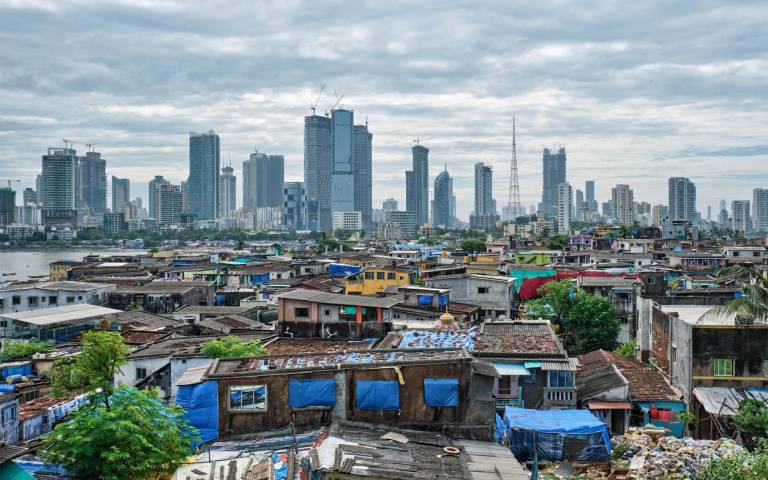How inequality is fuelling climate change
25 May 2022
Inequality is linked to more greenhouse gas emissions and tackling inequality is an integral part of combatting climate change, argues a new study by researchers at UCL and Salem State University, Massachusetts.

The research, published today in the peer-reviewed journal One Earth, identifies multiple pathways by which inequality leads to more emissions, bringing together evidence from different fields.
On the one hand, the researchers argue, the choices of the wealthy drive up emissions, not only through their own consumption – with the world’s richest 10% accounting for between 36% and 49% of global emissions – but also through their investment decisions. At the same time, the political power of wealthy shareholders and corporations in carbon-intensive industries enables them to obstruct climate policies that undermine their interests.
At the other end of the income distribution, poor and financially insecure citizens are understandably fearful of the effects that climate policies might have on prices and jobs, which makes politicians reluctant to enact such policies.
To tackle climate change, the researchers say, people need to work together and to authorise their governments to make far-reaching changes. Yet inequalities divide people and leave governments vulnerable to corruption, which undermines the social and political trust necessary for well-functioning democratic government.
The analysis suggests that governments need to tackle climate change in conjunction with efforts to ensure that wealth, social status and political power are distributed more equally. This idea lies at the heart of proposals—on both sides of the Atlantic and beyond—for a Green New Deal.
Lead author Dr Fergus Green (UCL Political Science) said: “Politicians around the world are reluctant to pursue the big reforms necessary to tackle climate change. Our study finds that part of the problem is that they are swimming against a tide of inequality.”
“The Green New Deal is often criticised for saddling the climate change agenda with a bunch of supposedly unrelated progressive social and economic reforms, like strengthening workers’ rights and investing in essential public services. But our study shows that these kinds of reforms are integral to tackling climate change at the scale and speed required.”
“Green New Deals enable governments to rapidly cut emissions while improving living standards for the overwhelming majority of people and shifting the costs onto the wealthiest in our societies. They offer a powerful vision commensurate with the scale of the problems we face.”
Co-author Dr Noel Healy (Geography and Sustainability Department, Salem State University) said: “There is a clear ‘climate case’ for tackling inequality. Billionaire wealth taxes, pandemic profiteering taxes, and pro-union reforms should not be seen as a ‘left-wing’ wish-list—but rather a key plank of climate policy.”
“Recent polls in the US show that every major component of the Green New Deal enjoys support from at least two-thirds of voters. Its dual focus on tackling climate and inequality together is both good policy and good politics.”
“Inequality weakens our ability to tackle climate change. Major economic, social, and democratic reforms are necessary to limit climate chaos, and a transformative Green New Deal—which tackles climate and inequality together—represents our best shot.”
Responding to the paper, Mira Alestig from Oxfam (Lead researcher, climate, food, Oxfam Sweden) said: “Inequality is not only accelerating climate change but also standing in the way of urgently needed action. The failure to tackle widening inequality is bringing us dangerously close to experiencing the worst impacts of uncontrolled climate change.
“It is clear: We cannot keep making structural policy choices that are only made for the richest and most powerful people. Government must urgently put equality at the heart of climate action.”
Links
- Research paper in the journal One Earth
- Dr Fergus Green’s academic profile
- UCL Political Science
- UCL Social & Historical Sciences
Image
- Top: View of Mumbai skyline over slums in Bandra suburb. Credit: iStock.
Media contact
Mark Greaves
T: +44 (0)7990 675947
E: m.greaves [at] ucl.ac.uk
 Close
Close

